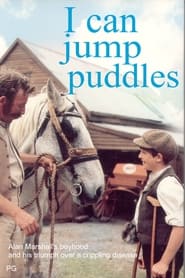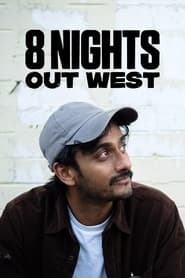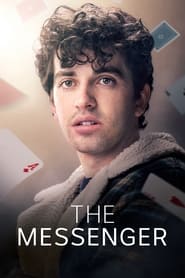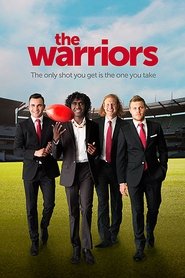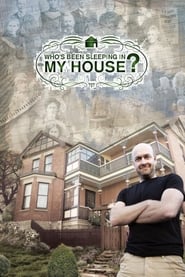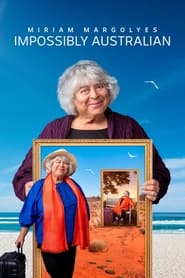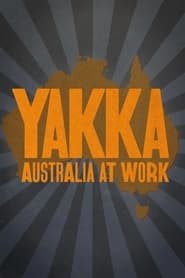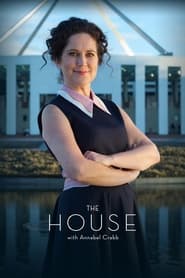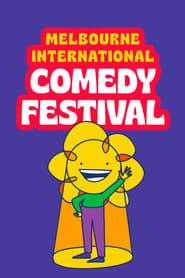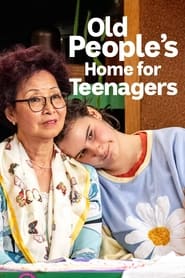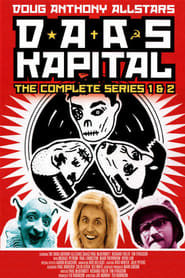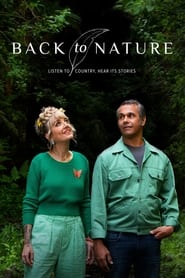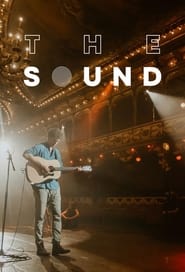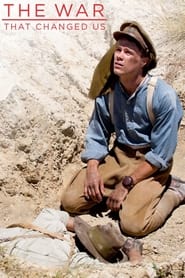Abc Tv TV Series - Page 15
-
I Can Jump Puddles
1981
I Can Jump Puddles
1981
I Can Jump Puddles is a 1981 Australian television mini-series based on the 1955 autobiographical series of the same name by author Alan Marshall. Adapted for television by screenwriters Cliff Green and Roger Simpson, the series starred Lewis Fitz-Gerald, Adam Garnett, Tony Barry, Julie Hamilton, Ann Henderson, Lesley Baker, Olivia Brown, Debra Lawrance and Darren MacDonald. Several prominent television actors also had supporting roles including Lisa Aldenhoven, Kaarin Fairfax, Maurie Fields, Terry Gill, Reg Gorman, Matthew King, Julie Nihill, Maureen Edwards and Dennis Miller and Jason Donovan and Cliff Ellen. A large part of supporting and minor roles also featured cameo appearances by cast members of Prisoner such as Esme Melville, Peter Curtin, Ian Smith, Christine Amor, Fiona Spence, Edward Hepple, Sigrid Thornton, Leila Hayes, Sandy Gore, Mary Ward, Anne Phelan. Future cast members included Billie Hammerberg and Pepe Trevor. -
8 Nights Out West
2022
8 Nights Out West
2022
A fresh digital series uncovering the culinary hotspots that are shaping the culture of Western Sydney's suburbs. Over eight Friday nights, Arka Das will be joined for a meal by special guests from the Here Out West film. -
Gruen Planet
2011
star 8The show that lifts the lid on advertising, spin and marketing. Join host Wil Anderson, stalwarts Todd Sampson and Russel Howcroft and other advertising industry experts as they unpick the ways we're all bought and sold. -
The Messenger
2023
star 7The Messenger tells the story of Ed Kennedy who becomes an accidental hero when he begins receiving mysterious messages that sets him on a life changing journey. -
Compass
0000
Compass
0000
Compass is an Australian weekly news-documentary program screened on ABC Television on Sunday nights. Presented by Geraldine Doogue, the program is devoted to providing information about faith, values, ethics, and religion from across the globe. -
The Warriors
2017
star 2.8The Warriors is set in the world of Australian Rules Football. It explores the elite world of professional sport through the eyes of two new recruits - plucked from obscurity to fame and fortune - and two established players as they are thrown together in a share house in Melbourne. -
Who's Been Sleeping in my House
2011
Have you ever wondered about who lived in your house before you? Where did they come from? What were their dreams, hopes and fears? And what became of them? "Who's Been Sleeping In My House?" is an Australian series presented by archaeologist Adam Ford exploring the incredible stories that lie between the bricks and mortar of our homes. From the Western Australian goldfields to the tropics of Queensland, Adam peels back the extraordinary lives of everyday Australians - people who lived, loved, bore children and moved on in the great cycle of life. As ghosts of the past, family secrets and architectural surprises are revealed, the present owners' relationships with their homes will be changed forever by the startling mysteries and unexpected revelations Adam unearths. Beneath the floorboards, between the walls, under the eaves, or somewhere deep down in the garden, the secrets of the past are just waiting to be revealed. -
Raw FM
1997
Raw FM
1997
Series revolving around community youth radio station 99.9 Raw FM and the young people who run it. -
Miriam Margolyes Impossibly Australian
2024
star 6.2Miriam Margolyes infiltrates and sheds light on a unique Australian community. Some are struggling or facing a bleak future, others are prospering, all say something about where we are heading as a nation. -
Marking Time
2003
star 6Marking Time was an Australian television mini-series, consisting of four one-hour episodes. It first aired on 9 and 10 November 2003 on ABC-TV. Directed by Cherie Nowlan and written by John Doyle, it was the first mainstream television/film project to address the issue of the Australian government's refugee policy, a topic it approaches by chronicling the emotional journey of one young man during his year off after graduation, in his fictional rural home-town of Brackley, Australia. The storyline of Marking Time was inspired by the real-life experiences of Afghan refugees and their hosts in the rural town of Young, New South Wales; however much of the outdoor scenes of the series were actually shot at Singleton, New South Wales, in the Hunter Region. -
Keep On Dancing
2022
Keep On Dancing
2022
Myf Warhurst hosts this two-part special, following nine older Australians over a 12-week experiment exploring the power of dance for people over the age of 65. -
Yakka: Australia At Work
2023
From working the land, to digging up minerals, from manufacturing to the services industry, Yakka: Australia At Work explores how work has shaped Australia from the Second World War to the present. -
The House with Annabel Crabb
2017
The House with Annabel Crabb reveals the late-night drama behind some well-known pieces of legislation and accompanies crucial decision-makers behind the scenes for the often messy process of making Australian laws. -
Melbourne Comedy Festival
2021
After a less-than-hilarious 2020, the Melbourne International Comedy Festival will be back, delivering COVIDSafe laughs and comedy good-times to Melburnians and the world. -
Old People's Home for Teenagers
2022
In a compelling new intergenerational experiment, older adults are brought together with teenagers to see if the power of this intergenerational program can transform the lives of older people and teenagers amid an epidemic of loneliness. -
DAAS Kapital
1991
star 5DAAS Kapital is an Australian television comedy series which was written and performed by comedy trio the Doug Anthony All Stars. The show starred Paul McDermott, Tim Ferguson and Richard Fidler, along with Flacco, Michael Petroni, Bob Downe and Khym Lam. The first season of seven episodes was broadcast on Australia's ABC network in 1991. A second series was produced and went to air on the ABC in 1992. The title is a reference to the trio's acronym "DAAS" and Karl Marx's economic treatise Das Kapital. The series was aired in 18 countries including Japan, Britain, USA and Germany. The series was released on DVD on 20 March 2013 with commentary by the All Stars and a new, original song. On 13 April 2013, the All Stars reunited for a one-off show celebrating the launch of the DVD set. -
Back to Nature
2021
Back to Nature
2021
A journey through the Australian landscape and the unique stories of the land, deepening our connection with nature. -
Australian Epic
2023
Australian Epic
2023
A musical extravaganza that breathes new life into some of the country's most defining stories, by giving them the full musical treatment they've always deserved. -
The Sound
2020
The Sound
2020
Celebrating the movers and shakers of the Australian music scene, showcasing some of the country's best musicians with exclusive live performances and interviews. -
The War That Changed Us
2014
star 6The epic story of Australia and the First World War is revealed through the lives of five Australians and their transformative journeys through conflict on the battlefront and on the home front.
